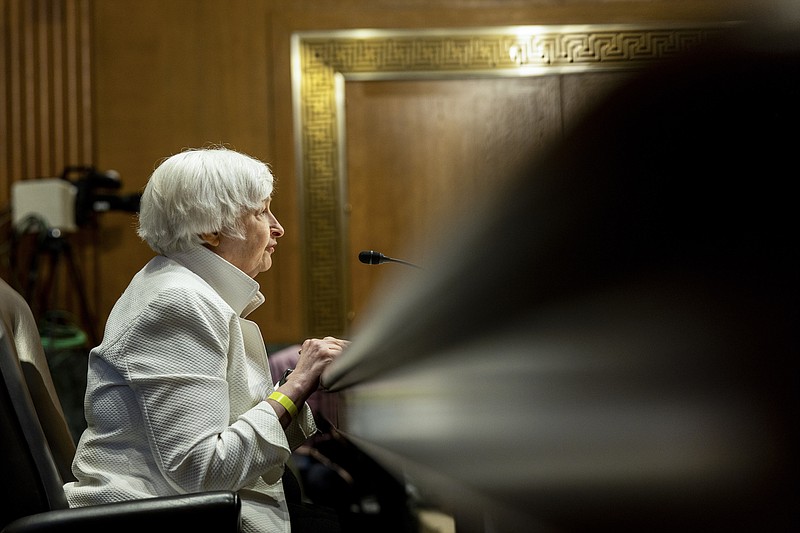A few days ago, I received an automated text from my bank. For some reason, the bank's algorithm flagged a valid charge on my debit card as potentially questionable; the text asked me to verify the purchase.
In a rational world, raising the federal debt limit would be regarded as the equivalent of typing "1" in response to that text -- acknowledging a purchase that you have already made.
No, raising the debt limit doesn't give the president free rein to spend whatever he wants. It simply allows the government to honor its promises, which include everything from paying interest on its debt to sending checks to Social Security recipients. These promises, duly authorized by Congress, exceed the expected amount of taxes and other revenue, so they must be met, in part, through borrowing; but that's normal operating procedure, and financial markets are happy to lend us the money.
Unfortunately, a quirk in the U.S. budget process requires Congress, having enacted budget legislation, to vote again to authorize the Treasury to raise the funds needed to follow the law. And Republicans -- who had no problem with large-scale borrowing when Donald Trump was in the White House -- are now getting ready to weaponize that quirk.
We officially hit the debt limit this week, but accounting maneuvers can postpone a crisis for several months. But what happens when those maneuvers are exhausted? The operations of the U.S. government will be disrupted; furthermore, U.S. debt plays a special role in world markets, which treat federal obligations as the ultimate safe asset, collateral for many transactions. If investors lose confidence that the U.S. Treasury will honor its promises, there could be a global financial meltdown.
A debt crisis, then, would be bad and possibly catastrophic. So, should Democrats give in to Republican demands?
No. A party that barely controls one house of Congress shouldn't get to impose deeply unpopular policies on the nation as a whole.
What, then, are the alternatives? I see three major possible routes.
First, while it remains baffling that Democrats didn't raise the debt limit while they still controlled Congress, there could yet be a legislative solution: Democrats could seek a "discharge petition" to force a vote on raising the debt limit despite opposition from GOP leaders.
Second, it's probably possible to use financial engineering to bypass the debt limit. The most famous proposal calls for minting a platinum coin with a face value of, say, $1 trillion, depositing that coin with the Federal Reserve and spending out of the bank account thus created. Believe it or not, this would almost certainly be legal.
Finally, there are a couple of what I think of as constitutional options. The 14th Amendment to the Constitution says that the validity of public debt "shall not be questioned," which might be construed as a reason to ignore the debt ceiling rather than default on payments.
Alternatively, it seems fair to say that the White House is facing incompatible demands. Congress has, through duly enacted legislation, specified levels of federal spending and taxes; but one house of Congress appears poised to tell the president that he can't raise the money he needs to obey the previous legislation. Since it seems that President Joe Biden can't avoid breaking at least some laws if the debt ceiling isn't raised, ignoring the debt ceiling may be the "least unconstitutional" option.
Which option should Democrats pursue? I'd say all of them. Above all, this is no time for officials to worry about seeming silly or undignified. The Biden administration is facing the threat of economic terrorism -- that sounds extreme, but it's basically what creating an artificial debt crisis amounts to. And it should do whatever it takes to face down that threat.
The New York Times
